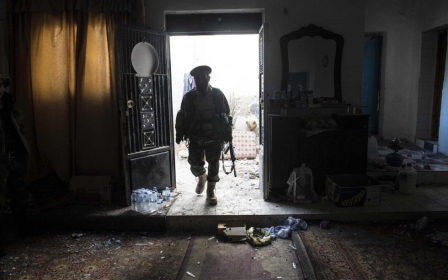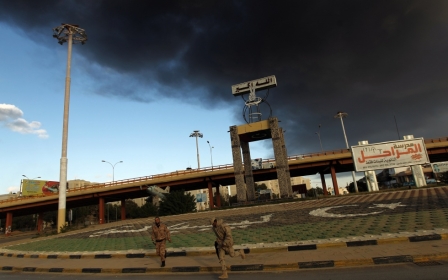10 more Egyptians reported missing in Libya, families say

Several families in Egypt's southern Assiut province have announced that ten of their sons have gone missing after being held at a checkpoint in northern Libya.
Several family members of the allegedly missing Egyptians told Anadolu news agency that they had lost contact with their sons – who had travelled to Libya last month – after they were detained at a checkpoint in Bani Walid.
"We decided to declare our sons missing after losing contact with them and losing any hope of finding them," one family member told AA.
"We thought the government might care about them after 13 Egyptian Copts were kidnapped in Libya," he said.
According to the families, their sons left Egypt by plane from the coastal city of Alexandria to Libya's eastern city of Tobruk in early December.
They later phoned their families and informed them that they had been detained at a checkpoint in Bani Walid while en route to the western city of Zliten.
The detainees were each asked to pay 2,000 Libyan dinars (roughly $6,000), the families said, adding that they suspected that a deal had been struck between a driver and the kidnappers.
"Ten Egyptians were held at a checkpoint to review their travel documents in a routine procedure," one Bani Walid security official told AA, refuting claims that the men had been kidnapped.
"The Egyptian nationals are in good health and will reach their destination soon," the official said.
He added that "the current security situation has prompted all checkpoints to step up security procedures to ensure the safety of all travelers, be they local or foreign".
On Saturday, the Egyptian media reported that "Islamist extremists" in Libya had kidnapped 13 Coptic Christians in Libya's Sirte. On Monday, a Libyan tribal elder said that the group had been freed.
New MEE newsletter: Jerusalem Dispatch
Sign up to get the latest insights and analysis on Israel-Palestine, alongside Turkey Unpacked and other MEE newsletters
Middle East Eye delivers independent and unrivalled coverage and analysis of the Middle East, North Africa and beyond. To learn more about republishing this content and the associated fees, please fill out this form. More about MEE can be found here.




